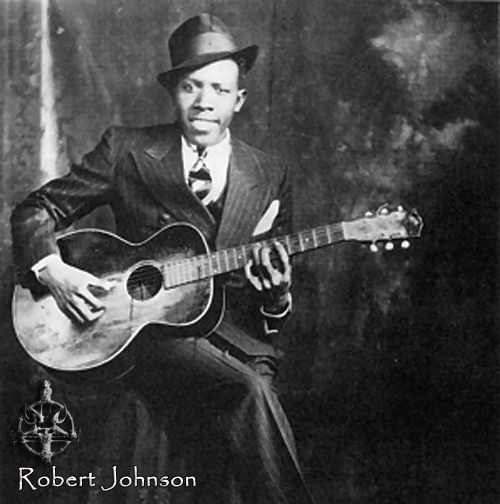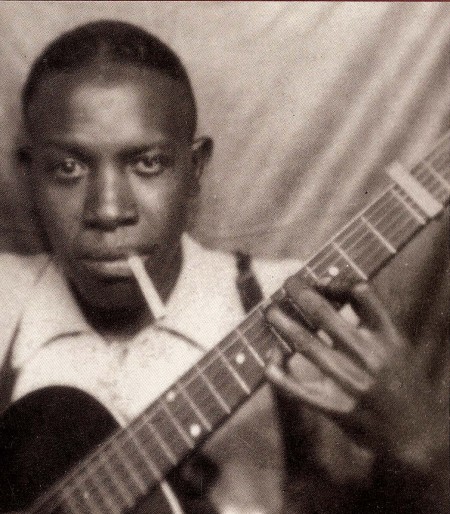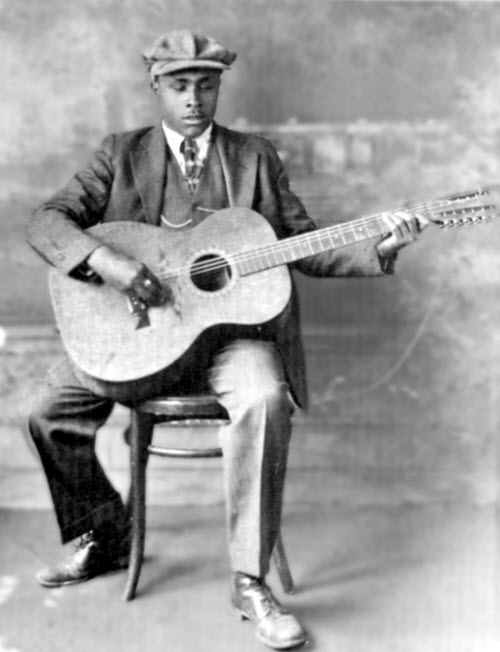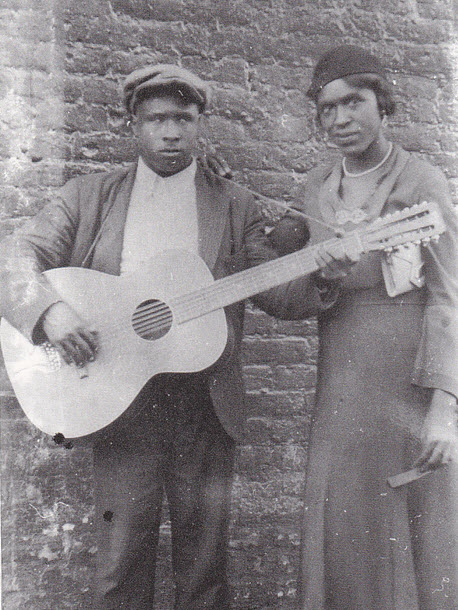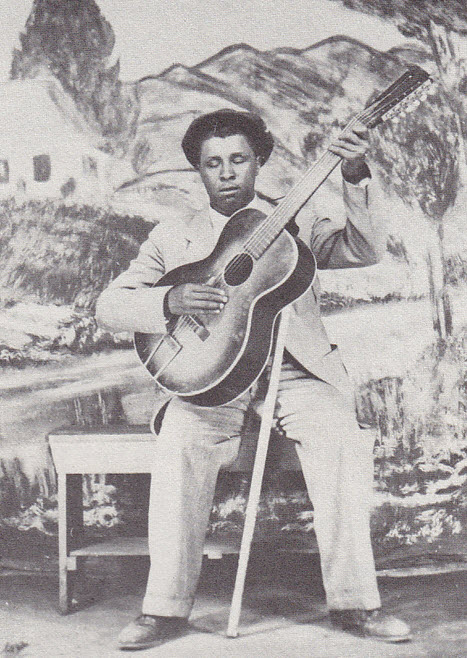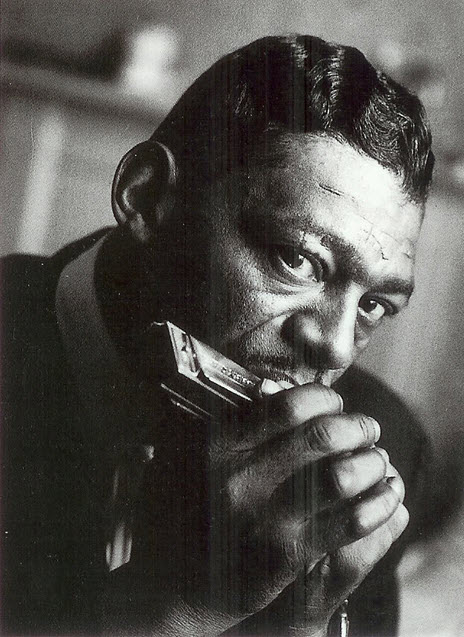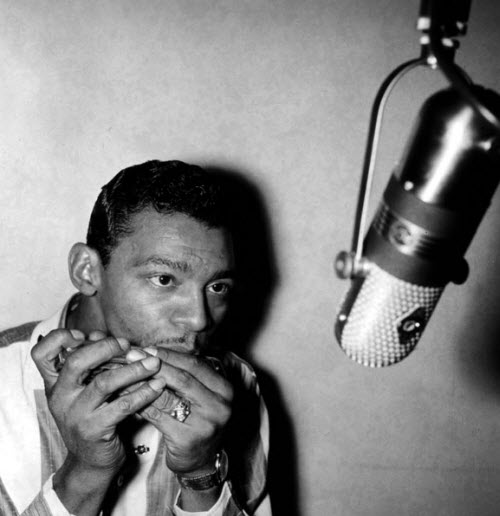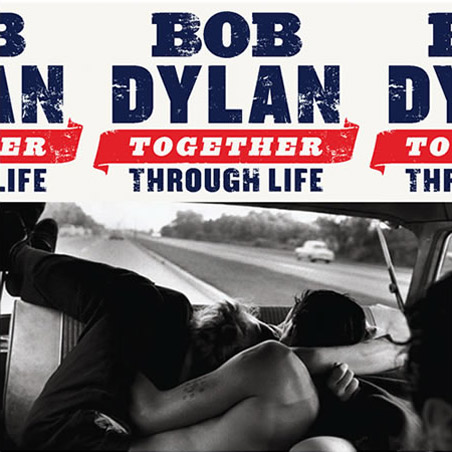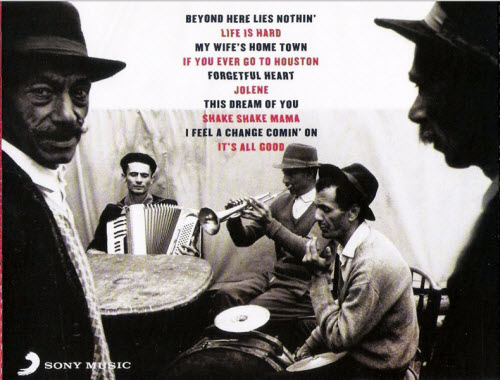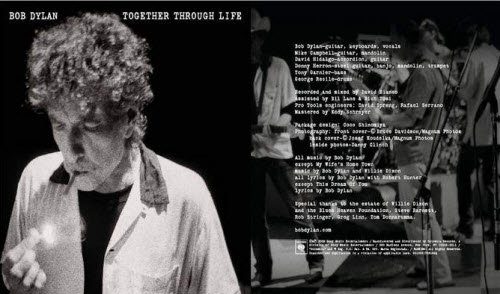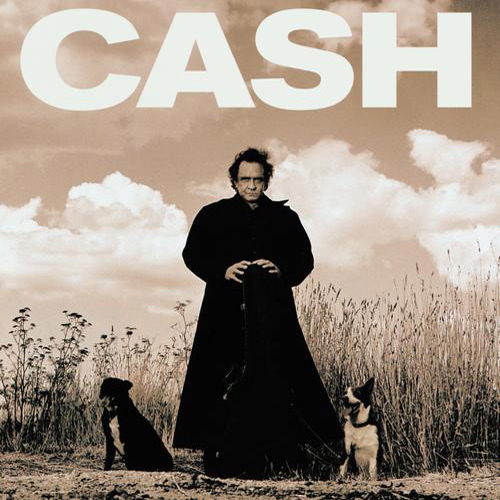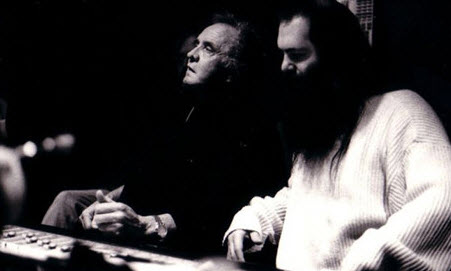“Just look at the picture of him with the acoustic guitar: His fingers are in the weirdest position. If you’re a guitar player looking at that, you know this is a guy who’s not even thinking; he’s just there. … The soul of his creative originality plays a huge part in music making for everyone who’s ever written a song and really known what they’re doing.”
~Neil Young“You think you’re getting a handle on playing the blues, and then you hear Robert Johnson — some of the rhythms he’s doing and playing and singing at the same time, you think, ‘This guy must have three brains!’ ”
~Keith RichardsFavorite album? I think the Robert Johnson album. I listen to that quite a bit still.
~Bob Dylan (Rockline interview – June 1985)
Cross Road Blues:
| Birth name | Robert Leroy Johnson |
|---|---|
| Born | May 8, 1911 Hazlehurst, Mississippi |
| Died | August 16, 1938 (aged 27) Greenwood, Mississippi |
| Genres | Delta blues, Country blues |
| Occupations | Musician, songwriter |
| Instruments | Guitar, vocals, harmonica |
| Years active | 1929–38 |
Robert Leroy Johnson (May 8, 1911 – August 16, 1938) was an American blues singer and musician. His landmark recordings from 1936–37 display a combination of singing, guitar skills, and songwriting talent that have influenced later generations of musicians. Johnson’s shadowy, poorly documented life and death at age 27 have given rise to much legend, including a Faustian myth. As an itinerant performer who played mostly on street corners, in juke joints, and at Saturday night dances, Johnson enjoyed little commercial success or public recognition in his lifetime.
Johnson’s records sold poorly during his lifetime. It was only after the reissue of his recordings in 1961 on the LP King of the Delta Blues Singers that his work reached a wider audience. Johnson is now recognized as a master of the blues, particularly of the Mississippi Delta blues style. He is credited by many rock musicians as an important influence; Eric Clapton has called Johnson “the most important blues singer that ever lived.” Johnson was inducted into the Rock and Roll Hall of Fame as an “Early Influence” in their first induction ceremony in 1986. In 2003, David Fricke ranked Johnson fifth in Rolling Stone’s list of the 100 Greatest Guitarists of All Time.
Me and the Devil Blues:
…Johnson’s major influence has been on genres of music that weren’t recognized as such until long after his death: rock and roll and rock. The Rock and Roll Hall of Fame included four of his songs in a set of 500 they deemed to have shaped the genre:
- “Sweet Home Chicago” (1936)
- “Cross Road Blues” (1936)
- “Hellhound on My Trail” (1937)
- “Love in Vain” (1937)
Johnson recorded these songs a decade and a half before the recognized advent of rock and roll, dying a year or two later. The Museum inducted him as an “Early Influence” in their first induction ceremony in 1986, almost a half century after his death. Marc Meyers of the Wall Street Journal wrote that, “His ‘Stop Breakin’ Down Blues’ from 1937 is so far ahead of its time that the song could easily have been a rock demo cut in 1954.
Playlist of the day:
Other May-08:
Continue reading Today: The late Robert Johnson was born in 1911 – 102 years ago

